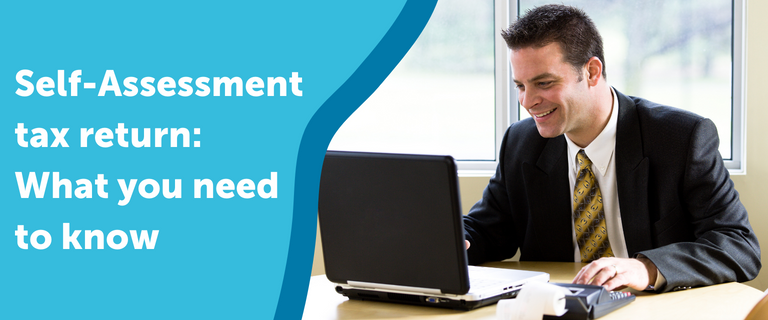Self-Assessment tax return: What you need to know
Benjamin Franklin famously said that “in this world, nothing is certain except death and taxes” and it’s hard to argue with that. As the deadline for the Self-Assessment tax return approaches, it is vital that you understand everything you need to know before filing your tax return.
Below, we outline the information you need to ensure a successful tax return.
1. When does the return need to be submitted by? And how is it submitted?
There are two ways to submit your tax return to Revenue – by post or online. The due dates depend on your choice of submission.
It’s important to note that Revenue discourages postal returns, with the majority of returns filed online. Also, it should be stressed that these dates are simply deadlines, meaning you can submit your return early – which is always a good strategy.
2. Do you need to file a self-assessment tax return?
In general, if you are self-employed or if you are a PAYE taxpayer who earns other income, such as rental or investment income, you are required to file a tax return.
For PAYE taxpayers, if your non-PAYE income is below €5,000, you can submit a Form 12. However, if your self-employed income exceeds €5,000, you need to complete a form TR1 to register for the self-assessment income tax system. Alternatively, you can register online through Revenue Online Service (ROS). Once registered, you can submit your tax return via a Form 11 on ROS.
Your tax liability is composed of two elements:
Once you have calculated your total liability, you must make your payment via ROS.
3. Your tax liability: How is it calculated?
Revenue’s online system will calculate your tax liability for you, based on the information you provide – saving you the stress of calculating it yourself.
The tax scale is the same for both PAYE and self-employed income. Ultimately, the amount of tax you pay largely depends on how much you earn and your personal circumstances.
For example, if you’re a single taxpayer, you’ll pay 20% in income tax on the first €36,800 of your earnings and 40% on the balance. However, if you’re married or in a civil partnership, and only one partner has an income, you’ll pay 20% in income tax on the first €45,800 of your wages and 40% on the balance.
Self-assessed workers are also required to pay PRSI (typically at 4%] and USC on their non-PAYE income. The amount of USC you will have to pay will depend largely on how much you earn – ranging between 0.5% and 11%.
Self-employed taxpayers are also entitled to Earned Income Tax Credit. This was introduced to make it fair in comparison to PAYE taxpayers, who receive a PAYE tax credit of €1,700.
4. What are the main expenses I can claim against my tax?
In relation to self-employed income, any expenses made exclusively for business purposes can be offset against your taxable income. For example:
Additionally, if any expenses were both for business and personal use, you can claim the percentage attributed to the business as a tax-deductible expense.
In terms of PAYE employees, particular categories of workers such as shop assistants, nurses, and plumbers, can claim flat rate expenses. All employees can claim tax relief if they use public transport, such as the bus, Luas or rail services to get to work every day by buying a taxsaver commuter ticket.
There are also other non-business expenses that you can claim upward of 20% tax relief on (and these can be backdated for up to four years). These include:
5. Do you need an accountant? Or can you submit the return yourself?
It is not a requirement to have an accountant submit your return. Ultimately, you have the choice as to whether you submit the return yourself or hire an accountant to crunch the numbers and submit on your behalf.
When making your decision, we recommend you consider factors such as your knowledge about tax and the complexity of your business.
If you do decide to submit the return itself, a great tool to prepare for your tax return is our bookkeeping software, Surf Accounts.
6. How should you keep your business records?
Even though you are not obliged to send Revenue any documents, you must store them for at least six years as Revenue may request them should they carry out an audit.
Should you use our accounting software, storing data isn’t an issue. Surf Accounts stores all your data on the cloud.
7. What are the consequences of paying your tax liability late?
Should you fail to pay your tax liability on time, you will face financial penalties. Additionally, the more time that passes, the higher the fee you will have to pay. See below:
Our final piece of advice
When it comes to submitting your self-assessment tax return, the best advice we can provide is to submit it early. You don’t want to leave it to the last minute. Leaving it late could result in you or your accountant rushing the process and causing mistakes in the return, or it could even cause you to miss the deadline.
By starting your return early you can ensure it is completed within the deadline, and you can give yourself plenty of time to review the application.
Want to learn more about Surf’s bookkeeping product?
If so, book a free, live one-to-one demo of Surf Accounts with one of our product experts who can answer any questions you may have.
Related articles

